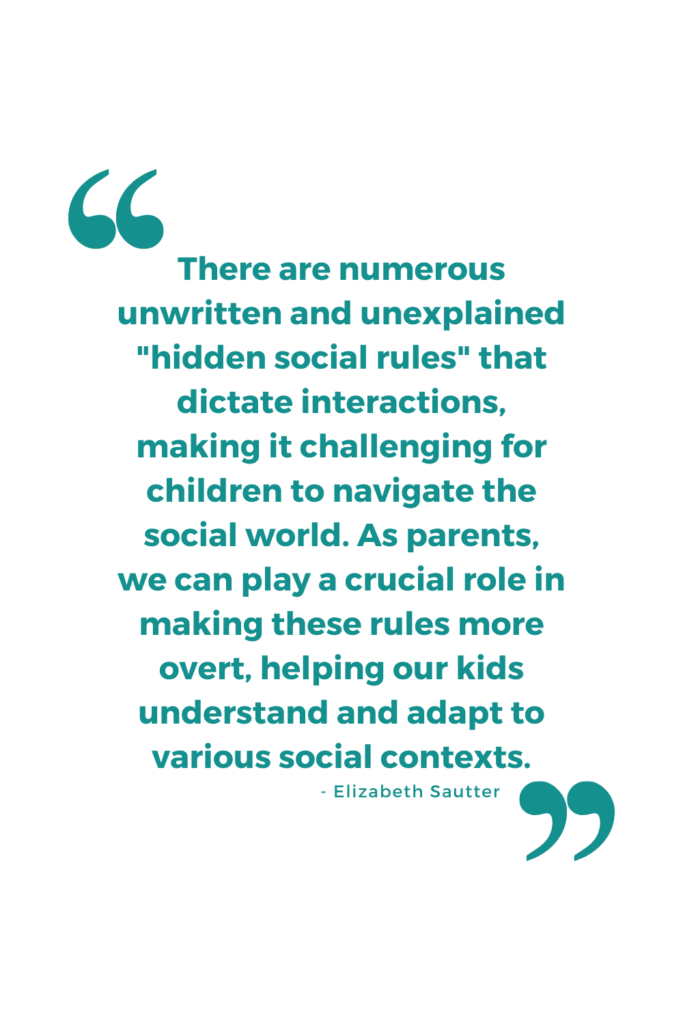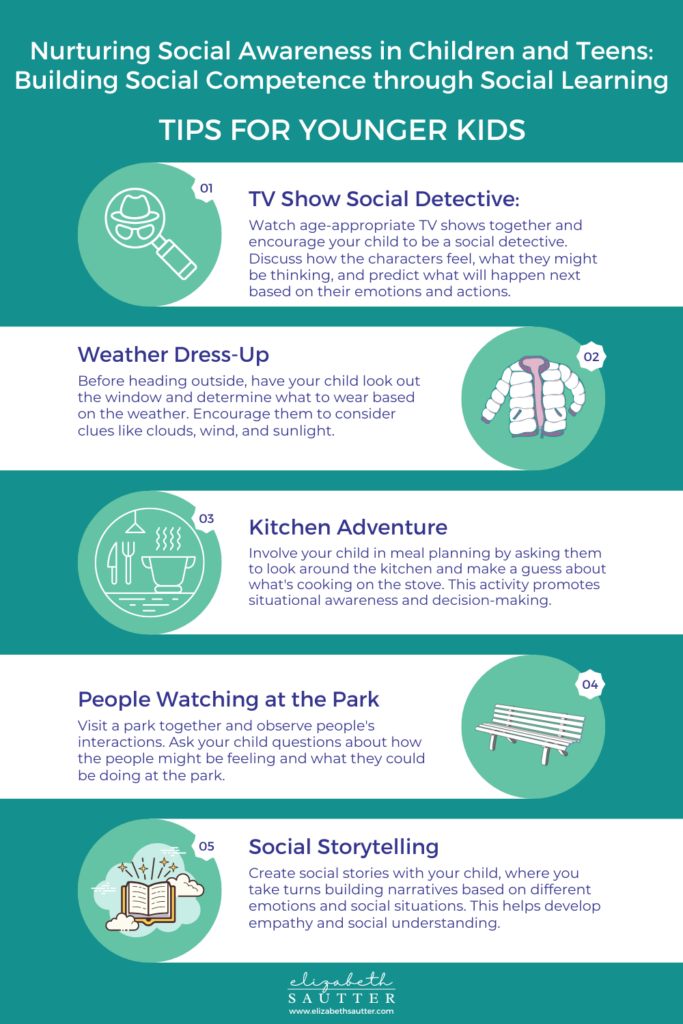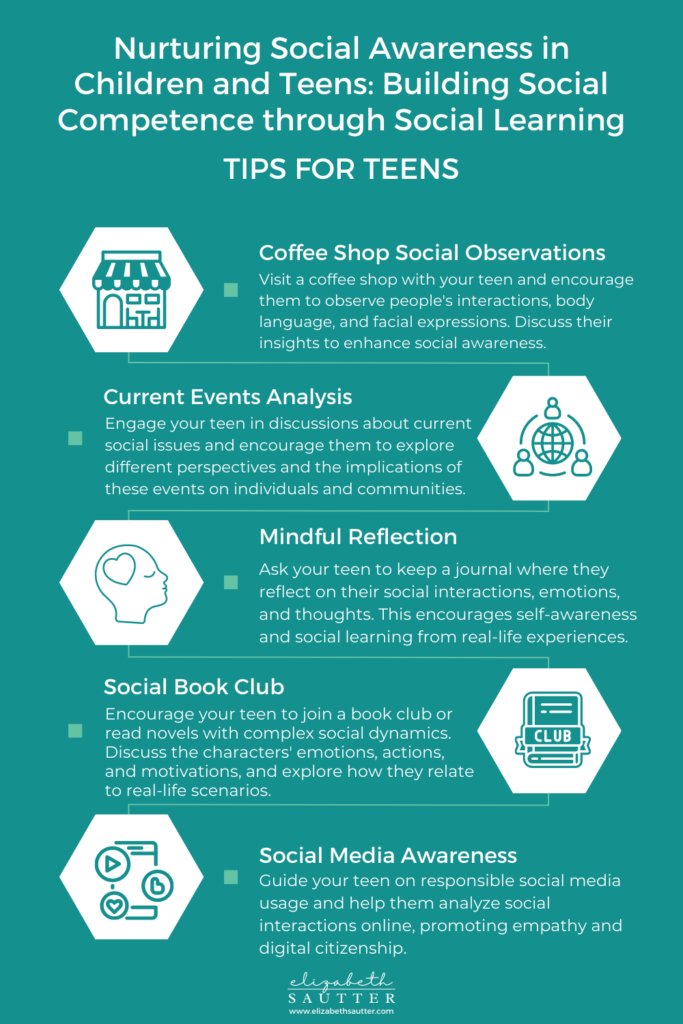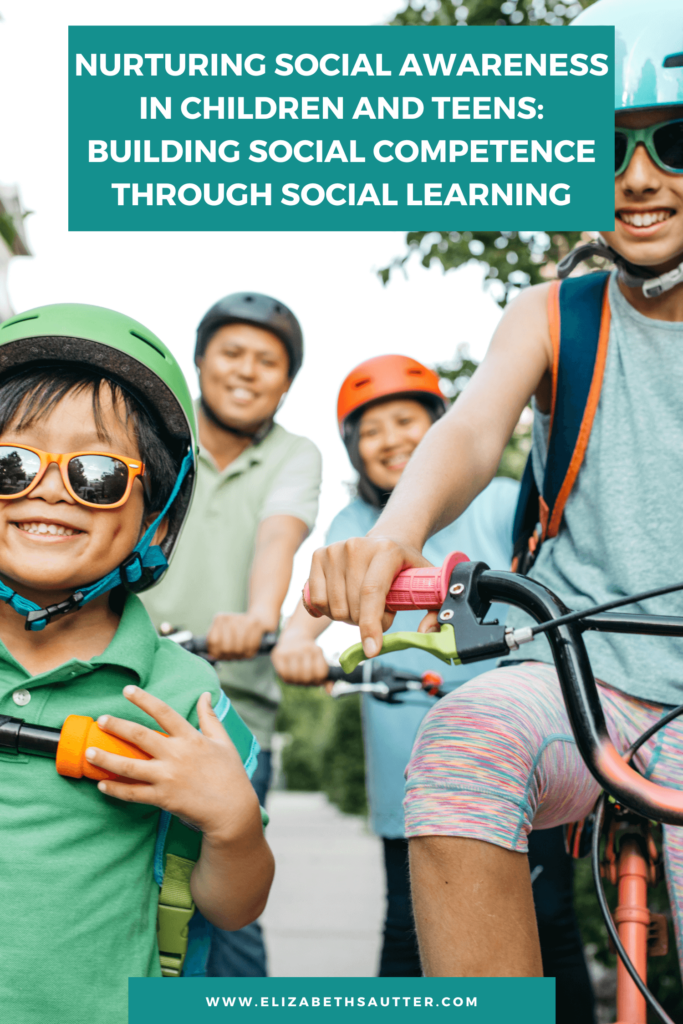Nurturing social awareness and situational awareness in children is crucial for building strong social competence and fostering meaningful relationships. Social learning activities can help your child develop these skills while making the process fun and interactive. This doesn’t have to be difficult or an add ON to your busy life, it can be and add IN to what you are already doing and tailored for different age groups, including younger kids and teens. For example, engaging your child in activities like being a social detective during TV shows, observing their surroundings to make decisions, and analyzing social interactions at coffee shops to enhance their social awareness. Understanding the constantly changing nature of social situations and the hidden social rules can help parents guide their children, leading to increased confidence and reduced anxiety in navigating the social world.
Understanding the Ever-Changing Social Landscape:
Social situations are dynamic and ever-changing, evolving from second to second.

Supporting Children in Social Learning:
By engaging children in social learning activities, parents can help them build social awareness and situational awareness gradually. These activities provide valuable opportunities for kids to practice and understand the complexities of social interactions in a fun and supportive environment.
Research-Backed Lifelong Benefits:
Research has shown that social competence can be taught and developed, and children benefit significantly from enhancing these skills. A strong foundation in social awareness and situational awareness leads to increased confidence and reduced anxiety in social settings, paving the way for positive social interactions throughout life (source: Harvard’s Graduate School of Education).


Fostering social awareness and situational awareness in children is essential for their overall social competence and emotional intelligence. Engage your child in age-appropriate social learning activities, such as being a social detective during TV shows, observing their surroundings, and analyzing social interactions. By understanding the constantly changing nature of social situations and making unwritten social rules more overt, parents can guide their children effectively, leading to increased confidence and reduced anxiety in navigating the social world.
These social learning activities can also be integrated into family fun and daily routines, providing valuable teachable moments for your child’s growth. By making social learning fun and interactive, you empower your child to navigate social situations with empathy, consideration, and confidence, laying the foundation for meaningful relationships and positive interactions throughout their lives.
If you’re looking for practical ways to support your child’s social and emotional development, check out our book, “Make Social and Emotional Learning Stick.” With a wealth of activities and ideas for everyday life, you can help your child build lasting social competence in a fun and supportive manner. Get your copy today and make a positive impact on your child’s future!
 Join the Upcoming Workshop –
Join the Upcoming Workshop – 
